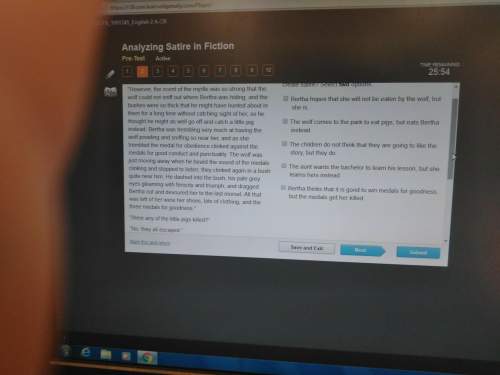
English, 04.06.2020 14:58 liljobe8973
Read the excerpt from Julius Caesar, act 1, scene 2.
SOOTHSAYER. Beware the ides of March.
CAESAR. What man is that?
BRUTUS. A soothsayer bids you beware the ides of March.
CAESAR. Set him before me; let me see his face.
CASSIUS. Fellow, come from the throng; look upon Caesar.25
CAESAR. What say’st thou to me now? Speak once again.
SOOTHSAYER. Beware the ides of March.
This passage is an example of
figurative language.
inversions.
foreshadowing.
internal conflict.

Answers: 1


Other questions on the subject: English


English, 22.06.2019 05:00, heyrosaphoto3159
What are the effects of cellular phones on our lives introduction
Answers: 3

English, 22.06.2019 10:00, kirstenb278
In the sentence from barbara kingsolver’s “life without go go boots”, “writers are supposed to be eccentric,” the word eccentric is a euphemism for
Answers: 3

English, 22.06.2019 11:20, jazminefeblez
Read the excerpt from “strychnine in the soup,” in which mr. mulliner explains the ending of a mystery novel to a bar patron who is anxious to know the conclusion of the story. “the plumber forgot his snake and had to go back for it,” explained mr. mulliner. ‘‘i trust that this revelation will prove sedative.” “i feel a new man,” said the draught stout. “i’d have lain awake worrying about that murder all night.” explain how a student who did not know the meaning of sedative could infer its definition?
Answers: 1
You know the right answer?
Read the excerpt from Julius Caesar, act 1, scene 2.
SOOTHSAYER. Beware the ides of March.
Questions in other subjects:



Health, 04.02.2020 10:54







Mathematics, 04.02.2020 10:54




